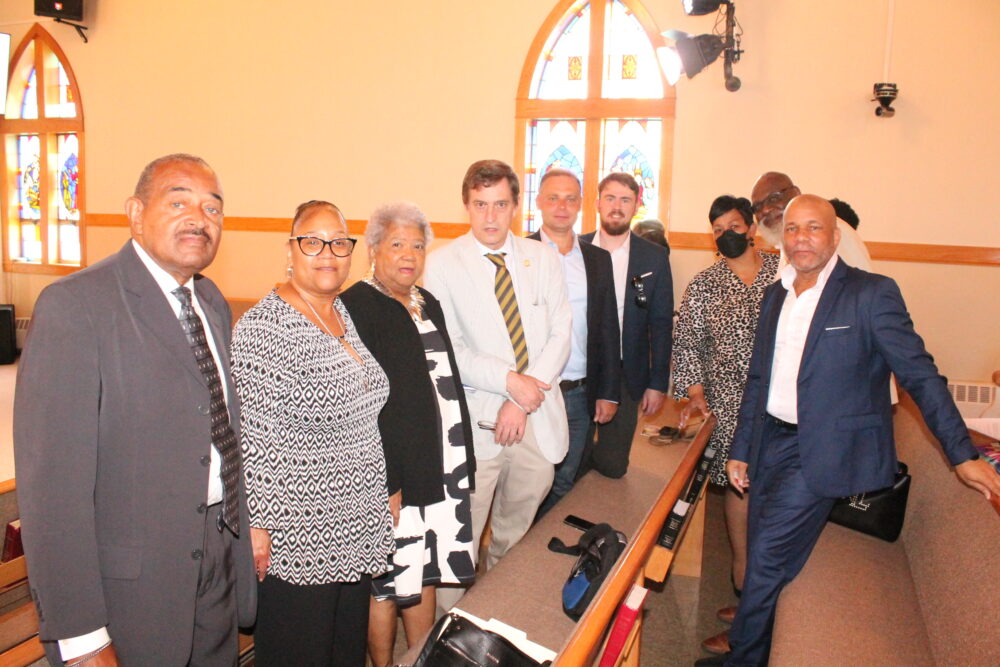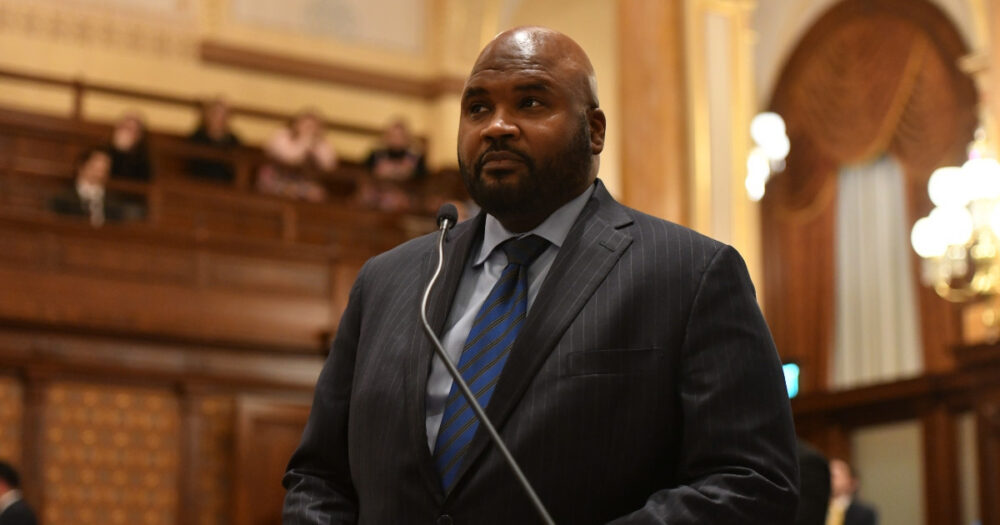Chicago’s minimum wage is set to increase Friday, when it will rise above $15 per hour for the first time. The increase, of 40 cents for workers at the city’s large employers, comes at a time when many Chicagoans are struggling with the effects of sky-high inflation.
Groups like the Fight for $15 have pushed for higher minimum wages for years. The state minimum wage in Illinois is $12; the federal minimum wage sits at $7.25. It has not increased since 2009.
Advertisement
During the pandemic, some employers, particularly those in the restaurant, retail and travel industries, have upped starting wages to $15 or higher. Companies with wage floors at $15 or higher include big employers like Target, Costco and Amazon. Deerfield-based Walgreens announced last year it would raise starting wages to $15 an hour for all workers by November of this year.
And now, as the country sees a wave of union organizing facilitated in part by pandemic conditions and a tight labor market, many workers see participation in the labor movement as a key to higher wages.
Advertisement
Scheduled changes are also coming to the city’s Fair Workweek Ordinance, which requires employers in certain industries to give employees advance notice of their schedules and pay them for last-minute changes. Starting Friday, the umbrella of workers covered under the ordinance will expand and employers will be required to give those employees a few days’ additional notice of their schedules.
“The minimum wage, it’s just, it’s fair, it gives people a living wage,” said Andy Fox, the director of Chicago’s Office of Labor Standards.
The city’s minimum wage policies and exceptions can be complicated. Here’s what you need to know.
As of July 1, employers with at least 21 employees must pay them at least $15.40 an hour, up from $15 last year. For medium-sized companies with between four and 20 employees, workers must make a minimum of $14.50 an hour, up from $14 last year.
Domestic workers, including people who work in child care, housekeeping and home health services, must make $15.40 regardless of employer size.
There are some exceptions: For example, tipped employees must make a minimum of either $9.24 for large employers or $8.70 for medium-sized employers. Employers are required to make up the difference between tips received and the applicable minimum wage for employer size.
Under the ordinance, workers under 18 must be paid at least $12 an hour, up from $11 an hour last year. Another exception is for young employees — those 24 or younger — of religious corporations or organizations. They must be paid at least $12 an hour.
Advertisement
Under the ordinance, the city’s minimum wage requirements can be waived in a collective bargaining agreement, but only if the waiver is written out explicitly in the agreement.
The city’s minimum wage increases are laid out in its minimum wage ordinance. Until this year, the minimum wage for larger employers in Chicago increased $1 per year. This year and beyond, the minimum wage increase for large employers is pegged to the Consumer Price Index or 2.5%, whichever is lower.
“Unfortunately, the Consumer Price Index this year exceeded that,” Fox said. That means that even though inflation hit 8.6% in May, the minimum wage increase is capped at 2.5%.
If the city’s unemployment rate meets or exceeds 8.5% in a given year, there will be no minimum wage increase the next year.
The minimum wage for medium-sized employers increased 50 cents this year. It will reach $15 on July 1, 2023.
Advertisement
The city estimates that more than 400,000 people will be affected by the minimum wage increase. That number comes from a 2019 report from the Illinois Economic Policy Institute that found a $15 minimum wage could “directly affect” over 430,000 workers in the city.
Call the Office of Labor Standards at 312-774-2211 or email bacplaborstandards@cityofchicago.org. The department’s investigators can answer questions and look into whether a case may need to be investigated more formally, Fox said.
Cook County’s minimum wage is also increasing July 1, to $13.35 for nontipped workers and to $7.40 for tipped workers. The county minimum wage increase is also pegged to inflation or 2.5%, whichever is lower.
The state minimum wage is $12 for nontipped workers 18 and over and $7.20 for tipped workers. It is set to increase Jan. 1, 2023, to $13 and $7.80, respectively.
The city’s Fair Workweek Ordinance, which went into effect in 2020, requires large employers in certain industries to give workers advance notice of their schedule and pay them for last-minute changes.
On July 1, the ordinance will require those employers to give workers 14 days’ notice of their schedules instead of the 10 days’ notice previously required. The cohort of workers covered under the ordinance will also expand. Now, employees in covered industries who make less than $29.35 per hour or $56,381.85 per year will be covered by the ordinance.
Advertisement
Industries covered by the ordinance are health care, hotels, restaurants, retail, warehouses, manufacturing and building services. In the context of the fair workweek ordinance, a “large employer” is one that has 100 or more employees. Nonprofits must have at least 250 workers. Businesses must have at least 50 employees who are eligible to be covered under the ordinance for the law to apply.







